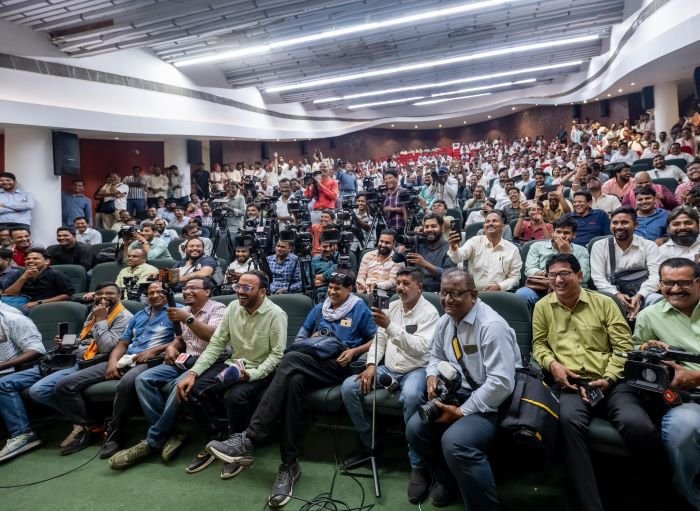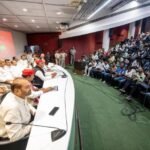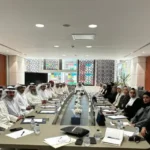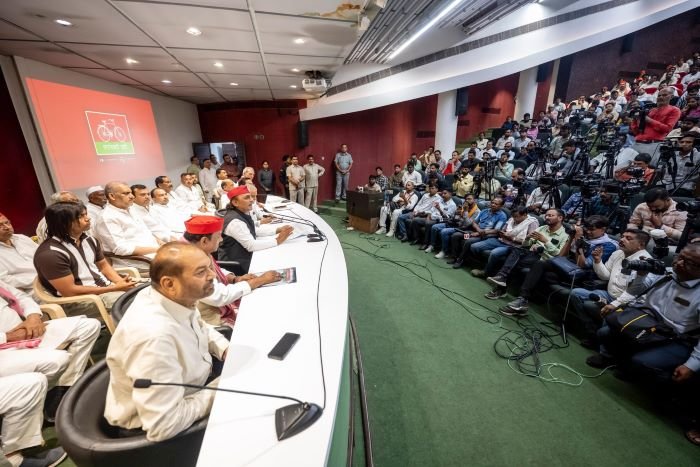
ARABIAN TIMES NEWS NETWORK
In my 40 years as a journalist, I have had the privilege of attending countless press conferences, some dazzlingly international, others deeply rooted in Indian politics. From heads of state to bureaucrats, I have watched spokespersons carefully lay out statements, dodge difficult questions, and occasionally offer calculated smiles. But never have I witnessed a press conference quite like that of Samajwadi Party President Akhilesh Yadav.
It was a masterclass in political communication, where wit met wisdom, aggression balanced articulation, and entertainment blended seamlessly with sincerity. Akhilesh Yadav, an articulate and highly educated leader, brings a fresh energy to the political space. At his press conference, he didn’t just answer questions, he performed. Each reply was a punchline, each criticism laced with both satire and facts.

Unlike the routine stiffness of typical conferences, Akhilesh Yadav’s interactions were peppered with humor, sharp observations, and a captivating rhythm that kept every journalist on edge, not from tension, but from sheer curiosity about what he might say next. But beyond the charm and charisma lay a chilling issue he spotlighted, “Corridor Corruption.” A term that now stands as a stark metaphor for exploitation disguised as development.
In India’s rapidly changing development narrative, the phrase “Corridor Corruption” has stirred controversy, especially when described in what appears to be a satirical take on the BJP’s so-called internal “training manual.” This alleged chapter doesn’t pull punches, it outlines a dark template of how political power can be used to systematically control land, money, and narratives under the noble guise of development.
At its core, the strategy is alarmingly simple: seize land from locals, often small traders, artisans, and traditional business owners, at throwaway prices. Label it “public interest,” push through poorly explained development projects, and then sell the same land at inflated rates. The result? Generational livelihoods vanish. The soul of a town is replaced by soulless commercial complexes. And the only beneficiaries are a select few who sit at the top of the political and corporate pyramid.
Akhilesh Yadav didn’t just narrate this; he illustrated it, with facts, with cases, and with real voices of the people who’ve suffered. Shops of local handicraft sellers were uprooted, families displaced, and religious places commercialized. Compensation, which should have been a balm, became another racket, where arbitrary figures and manipulated valuations turned the victim into a mere statistic.
What’s more disturbing is how deeply these actions fracture the social fabric. Outsiders are brought in to run businesses and secure political loyalties, while locals are sidelined. Faith becomes business. Heritage becomes real estate. And hope becomes disillusionment. This raises an unavoidable question:
If these so-called developmental projects were truly for the people, then why has the BJP lost or barely managed to hold on to constituencies where such projects have occurred? The answer is simple and sobering, because the people know when they’ve been used. They know when progress is selective. They know when they’re not the beneficiaries, but the cost.
Akhilesh Yadav’s press conference was more than an event. It was a window into the reality behind grand promises and glossy corridors. It was a reminder that development, without inclusivity and fairness, is nothing but another word for displacement. And perhaps most powerfully, it was proof that in an age of spin and spectacle, truth, when spoken with courage, still has the power to move minds and expose systems.










